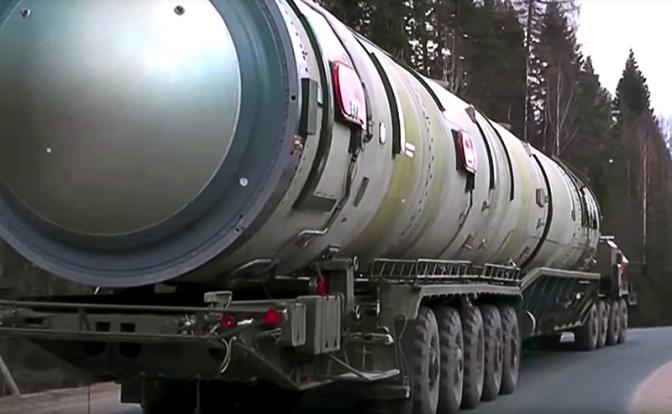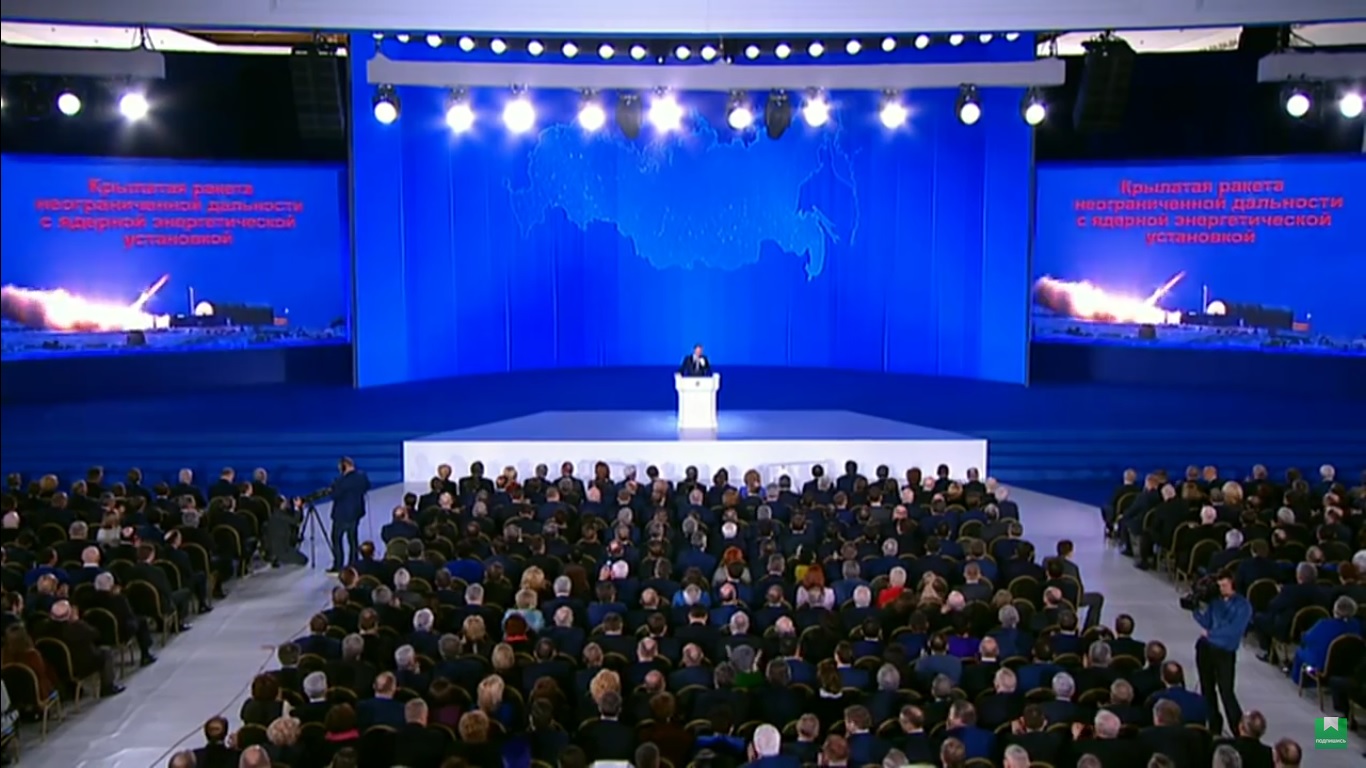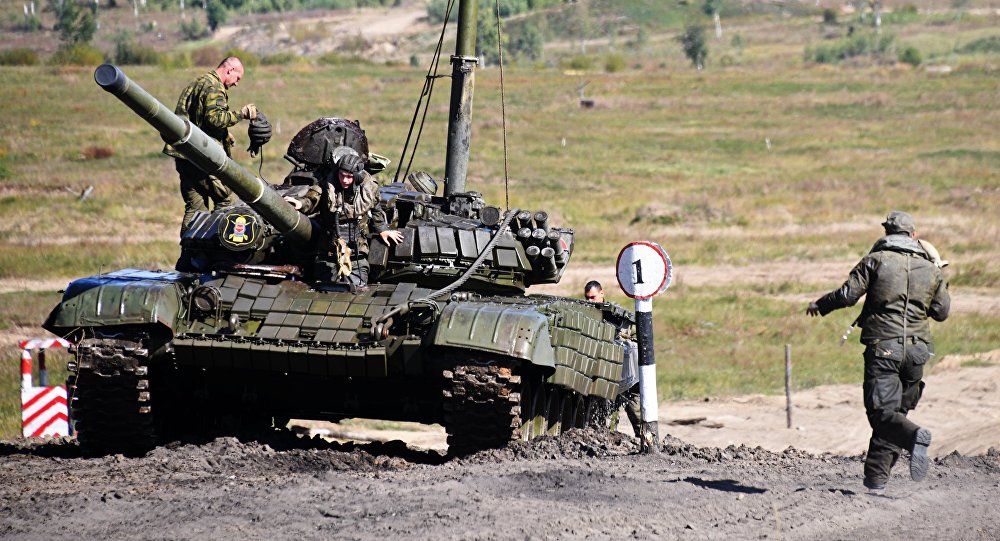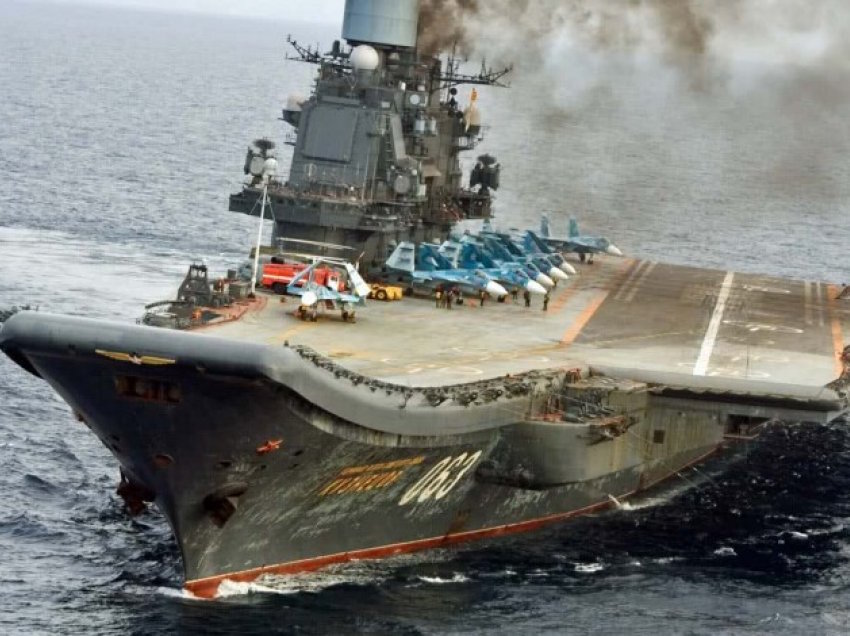Despite all of Vladimir Putin’s talk about super weapons that no opponent can stop, the aging of Soviet-era missiles and growing delays in bringing new Russian missiles on line mean that “the era of nuclear parity between Russia and the US is rapidly coming to an end,” Stanislav Vorobyev says.
And it is ending in a way that leaves the Russian Federation in an ever worse position, one that will call into question its pretensions as more than a regional power given that the only basis for its claims to be a super power is its nuclear arsenal, the Moscow commentator says.
That in turn, Vorobyev suggests, will have ever more significant consequences for what Moscow can and cannot do internationally and may go a long way to explaining why the Kremlin is talking about nuclear war now, given that it is likely to be far less capable of waging one in only a year or two.
In his article, the commentator provides a detailed description of the fact that many of the delivery systems on which the Russian nuclear weapons depend are in danger of going out of service before new ones can come on line. Missiles and submarines from Soviet times are aging and ever less capable, and the production of replacements is plagued by ever greater delays.
Vorobyev lists the ships which will soon have to be refitted or retired and documents that the time between announcement of a new weapons system and its being made operational has more than doubled between the Brezhnev era and the Putin one. This has three major consequences, he suggests.
- First, it is leading to “a sharp imbalance between Northern Eurasia and North America in the sphere of strategic arms. The Russian Federation will be forced to reduce by almost a third the number of its nuclear weapons” that are ready to be used. “Put in simplest terms,” the commentator says, “the era of nuclear parity is receding into the past.”
- Second, he continues, “the Russian Federation is losing its most threatening weapon; the only argument which is has to present itself as ‘a strategic partner’ for the US.
- And third, the lengthening delays in putting new weapons systems on line may mean that they will never go operational at all.
Statements by Russian military officials about just how long this is going to take suggest that “at a minimum,” there will be several years in which Russia will see a decline in the number of nuclear weapons it can actually and credibly threaten to deliver. And that number may in fact grow over time if factories can’t produce more and tests can’t be conducted more rapidly.
“In the best case,” Vorobyev says, “we are now at the edge of serious changes in the balance of nuclear forces between the Russian Federation and the US, something which inevitably will have an impact on future developments.” If Russia is unable to replace the Soviet nuclear weapons delivery systems on which it now relies, it will be reduced in importance.
Possibly reduced even to the rank of a regional or local power like “present-day Iran,” the commentator says. “This may look extraordinarily categorical,” he says, “but there are practically no chances for changing this trend.”
Further Reading:
- ‘Undoubtedly Russia has put nuclear weapons in occupied Crimea,’ Felgenhauer says
- Moscow pushing Ukraine toward becoming a nuclear power again, Pastukhov says
- Past due bills for housing forcing Russian defense ministry to cut weapons acquisitions
- Hollow ‘paper divisions’ are ever larger portion of Russian army, Golts says
- Moscow’s much-ballyhooed Vostok-2018 military maneuvers involve far fewer soldiers than advertised, Golts says
- Russian military having serious problems retaining contract soldiers, new data show
- Is Russia getting ready to launch a nuclear strike from Crimea?
- Russia can no longer afford a blue water navy, defense minister suggests
- Three signs Russian military and its political bosses are in trouble
- Ten types of Russian weapons didn’t work well in Syria, the Russian defense minister says
- Weakness not strength behind Putin’s new doctrine for broader information war abroad and at home
- Putin and Russia both far weaker than many think, three analysts say
- Kremlin nuclear hysteria: To wage or not to wage nuclear war
- Russia’s nuclear threats and spy games
- Putin’s nuclear brinkmanship betrays his military’s backwardness, Felgenhauer says
- Kremlin thinks West would not respond even to a small nuclear bomb attack, Kovalyev says






